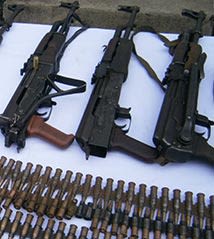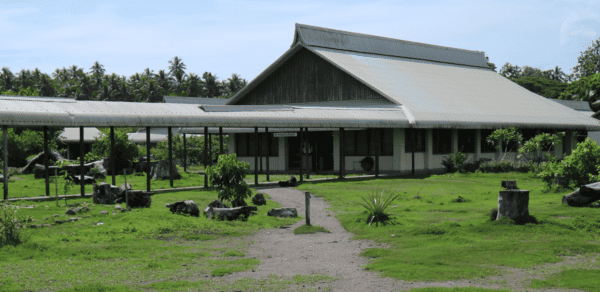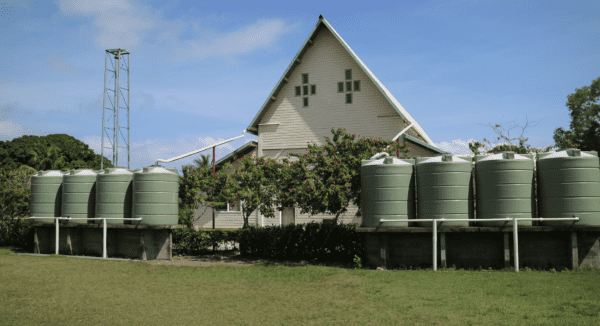Image: Security Threat Assessment level, Dungu, DRC, 2011 (Photo: Oxfam International).
I am staring at piles and piles of interview notebooks, stacks of business cards, electronic folders full of ‘classified’ documents, and mp3 files of recorded interviews.
I gathered this data during two months of fieldwork in the eastern Democratic Republic of the Congo (DRC), where I was conducting preliminary research for my project on armed groups and political inclusion. It’s difficult to know where – or how – to begin processing this mass of materials.
This week, the University of Birmingham’s Institute of Advanced Studies is hosting a workshop, Knowledge, ‘Information’ and Conflict: What we know, how we know it and what it means, where a group of researchers with similar exposure to conflict-affected regions will gather to share their experiences. Participants will be encouraged to reflect critically on the security and access restrictions that have ‘widened the physical gap between the “world” of the researcher and that of their subjects further than ever’. We are asked to consider the extent to which we can truly ‘know’ the societies that we work both in and with, in the developing world.
In this post, I discuss how the threats to my personal safety and difficulty travelling around the eastern DRC affected my access to information. Tomorrow’s post will address the challenges I faced verifying and processing the contradictory, yet equally plausible, accounts of events I was given.
Whether the threats to my personal safety were real or perceived, they did affect my ability to do fieldwork. I was only able to get ethical clearance to travel to the field after lobbying the UK’s Foreign and Commonwealth Office (FCO) to change its travel advice on Goma from ‘advise against all travel’ to ‘advise against all but essential travel’. My university would not permit me to stay overnight anywhere where the FCO advised against all travel, and so I could not spend the night outside the towns of Goma and Bukavu. Although I did venture out for day trips into ‘the field’, destinations were picked primarily for ease of access.
Such caution was perhaps excessive. Several other (non-British) Western researchers were working in areas of the eastern DRC that were under FCO travel bans.
But the FCO’s cautious approach isn’t entirely unreasonable; the unstable political environment, high levels of criminality (especially on the roads at night), and lack of effective police and justice system, certainly makes the eastern DRC more dangerous than the UK. And without good road access or full consular assistance, the FCO cannot guarantee the safety of British citizens in the DRC.
Weapons recovered by MONUSCO forces following the defeat of the M23 rebel group (Photo: Suda Perera).
However, the security controls imposed on non-Congolese development workers in the eastern DRC, ostensibly designed to mitigate these risks, often serve to create further difficulties. The UN and many NGOs impose strict security protocols on their ‘mzungu’ staff (a Swahili term generally taken to mean white people, but often implying a certain kind of attitude and behaviour). For example they are forbidden to walk or use public transport, visit certain Congolese bars and restaurants, and they must live in heavily-guarded residences in certain ‘safe’ parts of town.
This leaves many international workers in the eastern DRC remarkably dislocated from the people they ostensibly work for. By living in heavily guarded residences and driving those ubiquitous SUVs, aid agencies are sending an implicit message that foreign lives need protecting more than Congolese lives.
The broader implications of this dislocation for development programming has been the focus of several recent scholarly works, from those drawing on Raymond Apthorpe’s notion of ‘Aidland‘, to Severine Autesserre’s latest book Peaceland. Apparently reasonable security measures may reinforce perceptions that the Legions of Peace are not really there for the good of the Congolese people, but rather for their own political, economic and personal ends.
So how much value does ‘being there‘ have for researchers in conflict-affected environments? Certainly, I could not have made the contacts I did had I stayed in the UK, nor could I have witnessed the unexpected peculiarities that make apparently simple peacebuilding interventions intractably complex. All of this will feed into my analysis.
I sought to resist what Duffield calls the ‘bunkerization’ of international aid workers. I walked whenever time allowed it within Goma and Bukavu, and took moto-taxis and buses when travelling out into the field. But this was only possible because I travelled with my Congolese colleagues (who were invaluable throughout the entire fieldwork experience).
An additional constraint was the relatively short period of time I spent in the field. Compared to Congolese researchers, or non-British European researchers such as Christoph Vogel, Timo Mueller, and Judith Verweijen, who have spent years living and researching in the eastern DRC, I am aware that my data runs the risk of providing a superficial snapshot of the region’s current dynamics.
Of course, I have tried to triangulate my findings with historical analyses of the Congo and the findings of more deeply embedded researchers, and I have consulted a wide range of ‘experts’ on the DRC. But ‘being there’ has not helped me organise my findings into a fully coherent picture. How to process such messy data is the subject of my second post.











